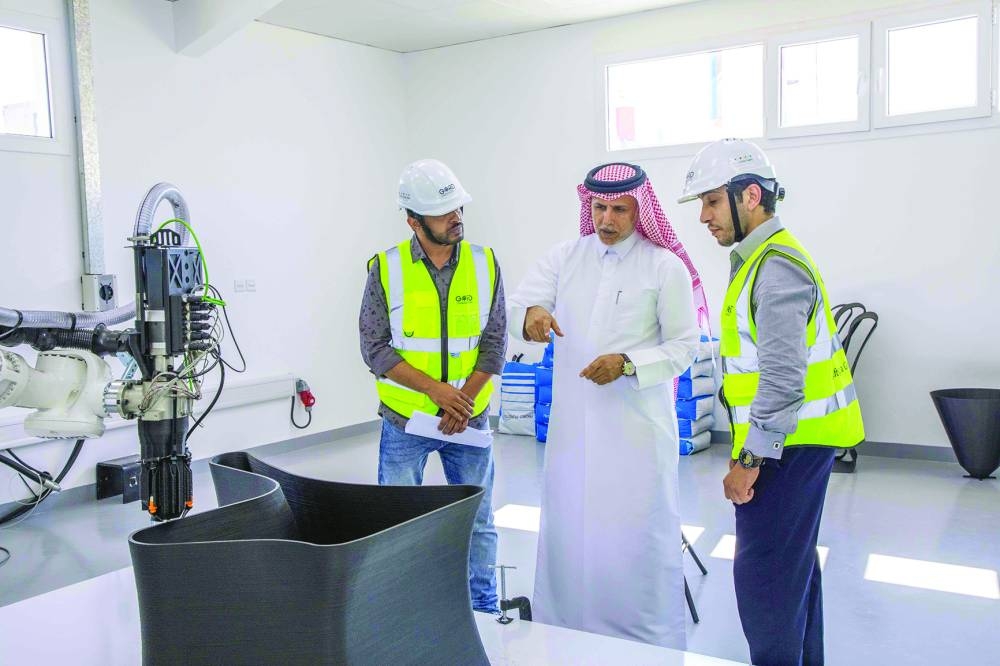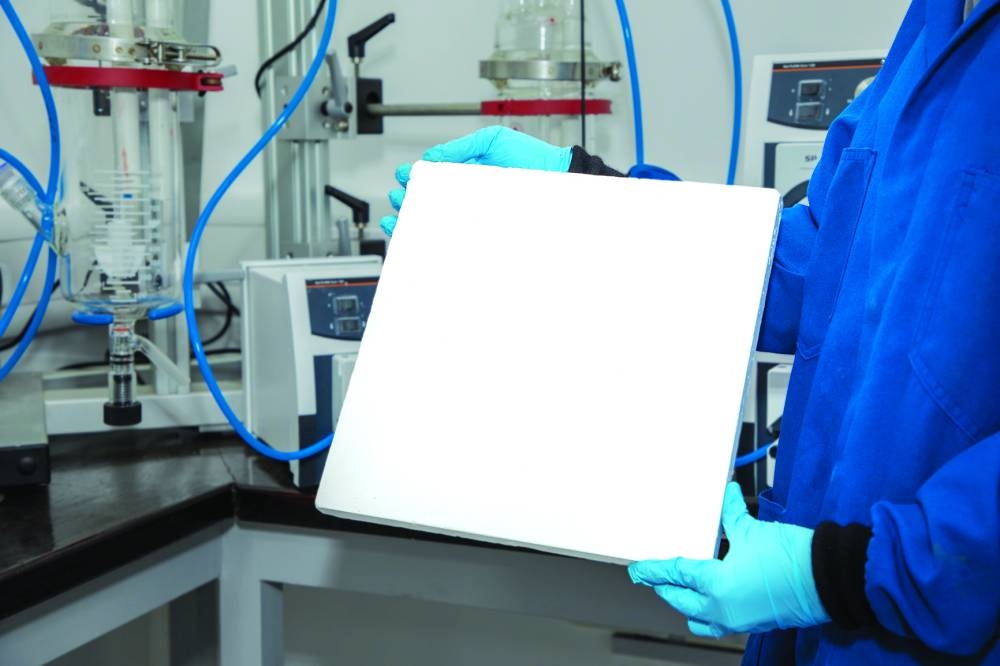The Gulf Organisation for Research and Development (Gord) based at Qatar Science and Technology Park (QSTP) is planning for large-scale production of carbonate-based plaster from various waste materials. The pilot plant at QSTP is now under commissioning and the aim is to start production soon.
“At Gord, we have established this pilot plant for producing eco-friendly plasterboard of superior performance from carbon capture and mineralisation processes. The process uses sustainable methods that avoid the negative environmental impacts associated with traditional production,” Dr Yousef Alhorr, founding chairman of Gord told Gulf Times in an exclusive interview.
Gord is using the waste streams from different industries in Qatar for the project. “We have several desalination units in Qatar. We take their rejected brine, as well as the gas flue from different power and chemical industries. We utilise this flue gas, and we extract and sequester the CO2 emissions from it.”
“Then all these are combined with the rejected brine. Thereafter we make use of magnesium, again from the rejected brine, to produce eco-friendly carbonate-based plaster, which is also safe for human health.”
According to Dr Alhorr, the eco-friendly product has three times the compressive strength of normal plasterboard cement with 50% less density or weight. “So, it is lighter, higher in compressive strength, as well as eco-friendly because the raw material is derived from waste. We have filed for a patent for this process and technology,” he noted.
The founding chairman said that Gord is planning to make the pilot plant as a demonstration facility for investors. He also pointed out that it is a Qatari-patented technology taking the country’s efforts in research and innovation to higher levels.
“By demonstrating the production process on a smaller scale, we can show the technology’s viability, allowing investors to see the material first hand and understand its potential. Soon, we hope to commence full operations of the facility where we can produce larger quantity of this material,” he highlighted.
“The plant at QSTP will help to educate the investors about the feasibility and viability of the product as well as its positive environmental impact. If all goes well, we will go for large-scale production to scale up it on industrial scale. As we produce more of this material, it will reach the market as a high quality Qatar product,” added Dr Alhorr.

Dr Yousef Alhorr at the pilot plant

A specimen of carbonate-based plaster

